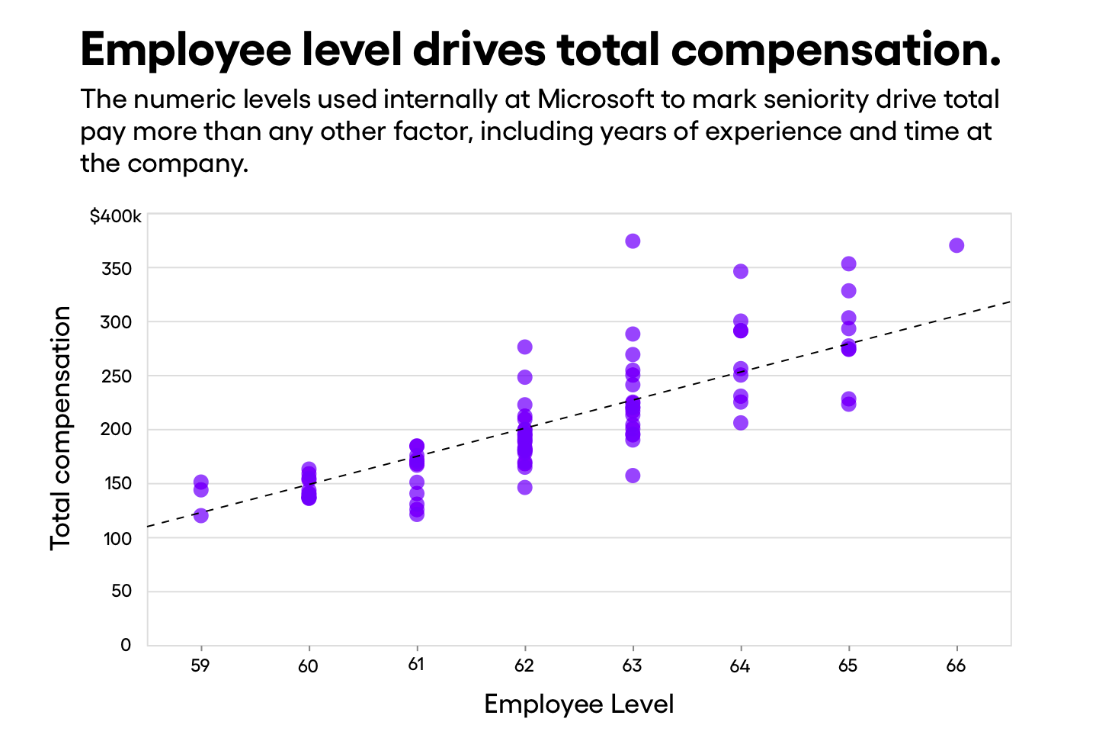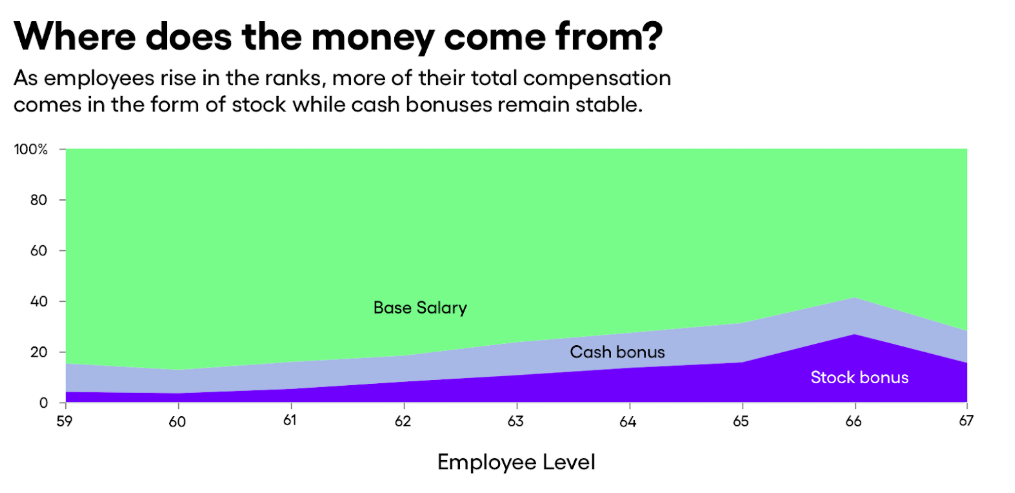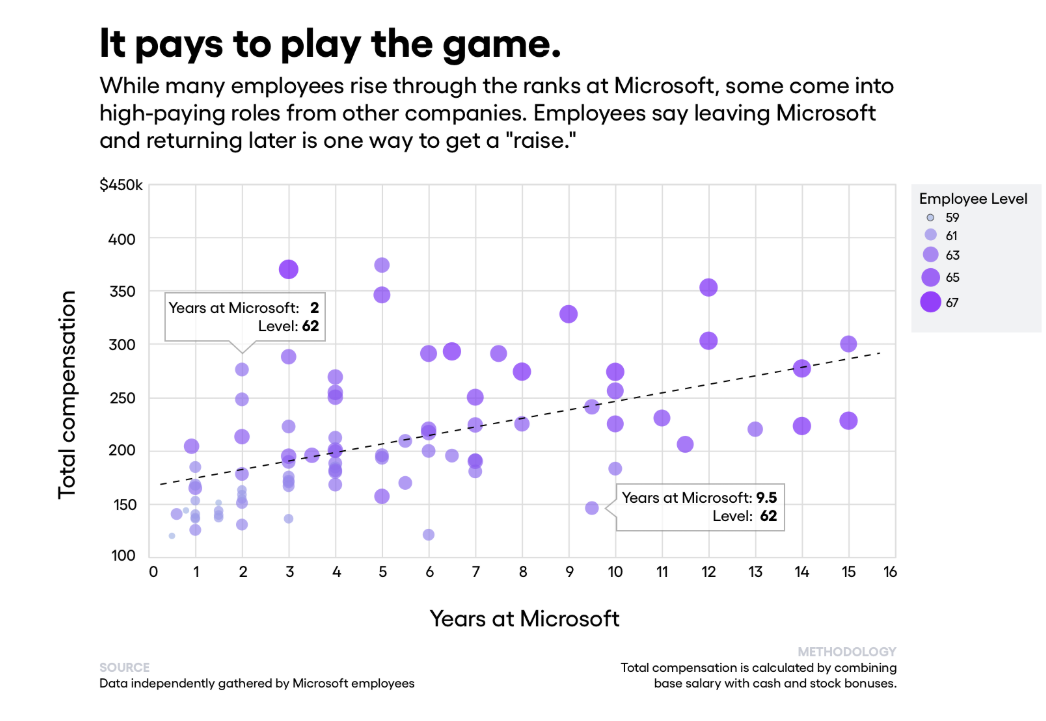Hundreds Of Microsoft Employees Are Leaking Their Salary Details On Purpose
Almost 400 Microsoft employees have decided to go “open source” with their salaries, in an attempt to turn the tables on management and determine whether or not they are being fairly compensated, according to OneZero.
The movement to share salaries with each other started from a private Facebook group called “Young Microsoft FTE”, where full time employees (FTEs) spend time discussing the company. They have been collecting each others salaries in a Google spreadsheet. The 400 employees participating are a small sub-sect of Microsoft’s more than 140,000 workers.
“Share your anonymous info so we can all get paid more together,” the objective at the top of the document states.
The sheet looks at the details of how compensation is broken down for Microsoft employees and tracks years of experience, years at the company, percentage of merit-based raises, base pay and stock compensation. It also includes cash bonuses. Some employees have made note of special stock awards, which generally mark signing bonuses or milestone achievements.
Interestingly, the spreadsheet did not note gender. We don’t know if they just felt it was an irrelevant metric or if they didn’t want to offend any West Coast liberals by forcing them to identify as a gender.
Regardless, Microsoft employees are situated on a scale that starts at level 59 and goes to level 80. Employees are hired at a certain level, and then can be promoted to new levels as they remain at the company. The typical employee who submitted data to the spreadsheet was a Level 62 software engineer based in Washington state. They’ve been at that level for a year and have been at Microsoft for three years, reporting five years of total experience and a base pay of $150,000. They reported a $20,000 cash bonus and another $15,000 in stock based bonuses.
The data shows that an employee’s “level” is the greatest indicator of compensation at Microsoft, as opposed to overall experience or time spent at the company. It is rare that lower level employees are paid more than higher level employees.
As employees progress, more of their compensation winds up coming in the form of stock. At level 66, for instance, employees reported that nearly 40% of compensation came from cash and stock bonuses. Stock bonuses stay relatively stable as a percentage of salary over the course of a Microsoft employee’s career, but can rise to 20% of annual income at higher levels.
Employees have also said that a common tactic is to leave Microsoft, go work at another Seattle company like Amazon, only to come back and jump to a higher level after being re-hired at Microsoft.
Data also indicated that Microsoft employees in India were paid “far less” than those in the U.S. A coder in India typically makes less than $50,000 per year, while Americans routinely make three times as much with up to 10 times as much compensation in bonuses.
Zaheer Mohiuddin, co-founder of Levels.fyi, a tool that collects salary information across the tech industry said: “Most people don’t even realize what the leveling scheme is at other companies or where they should fit, and [levels have] a huge impact on salaries.”
Co-founder Zuhayeer Musa stated: “It was very much something we wanted to build for ourselves to help solve this compensation pay transparency issue, and we wanted to do that across companies. These internal salaries sharing threads were pretty great, but they didn’t encompass the whole industry, different companies across different levels.”
Musa concluded: “There is a huge altruistic component of why people contribute to Levels. fyi. I think it’s really people just seeing that there’s a need for something like this to exist.”
Tyler Durden
Mon, 09/16/2019 – 14:54
via ZeroHedge News https://ift.tt/31uDm7E Tyler Durden


